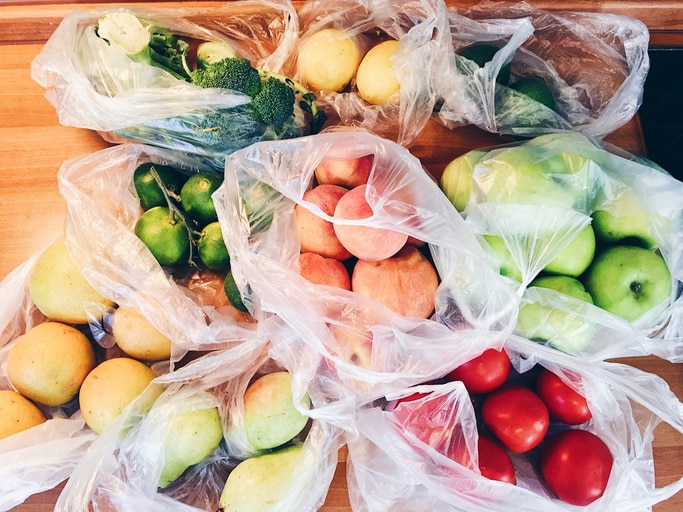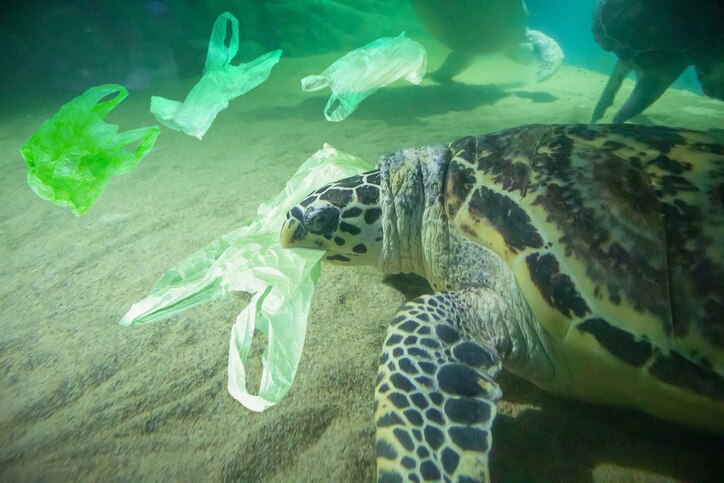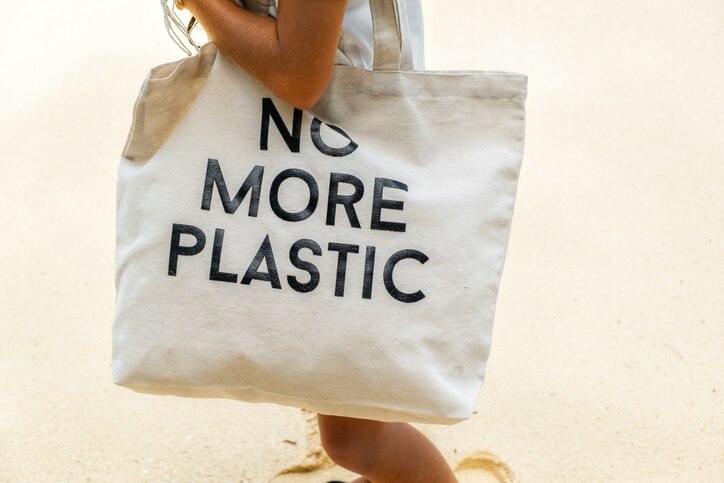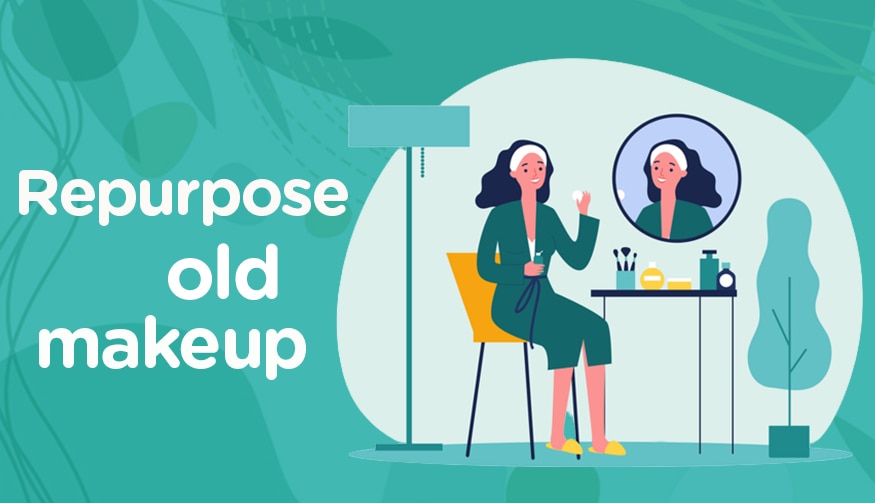Single-use plastic bags, made to be used just once, are a major environmental threat. Annually we are polluting our planet with five trillion plastic bags, usually ending up in landfills, or in waterways and oceans. Read on and find out why plastic bags are so bad for the planet and alternatives to plastic bags.
1. Non-sustainable
A single plastic bag takes up to 700 years to start breaking down. As it contains non-renewable petrochemicals, when it starts to degrade, it crumbles into microplastics that absorb toxins and continue to pollute the environment.

2. Harmful to marine wildlife
Plastic bags pose one of the greatest impacts to marine wildlife. Sea turtles, for example, often mistake flimsy, clear plastic bags for jellyfish (food) that takes up room in their stomachs, and are often found dead with stomachs full of plastic waste.

4 Sustainable alternatives to plastic bags
Looking for alternatives to plastic bags? Say no to single-use plastic bags and bring your own bag. Find out the best sustainable alternatives to plastic bags.

- Reusable plastic bags – made from post-consumer recycled content or post-industrial content, which can be used up to hundreds of times.
- Compostable bags – made from renewable raw materials, which can be broken down leaving a smaller footprint on the environment.
- Cotton bags – made from traditional, organic, or recycled cotton.
- Jute bags – made from vegetable fibre that is a naturally renewable resource and can be broken down into organic materials.










